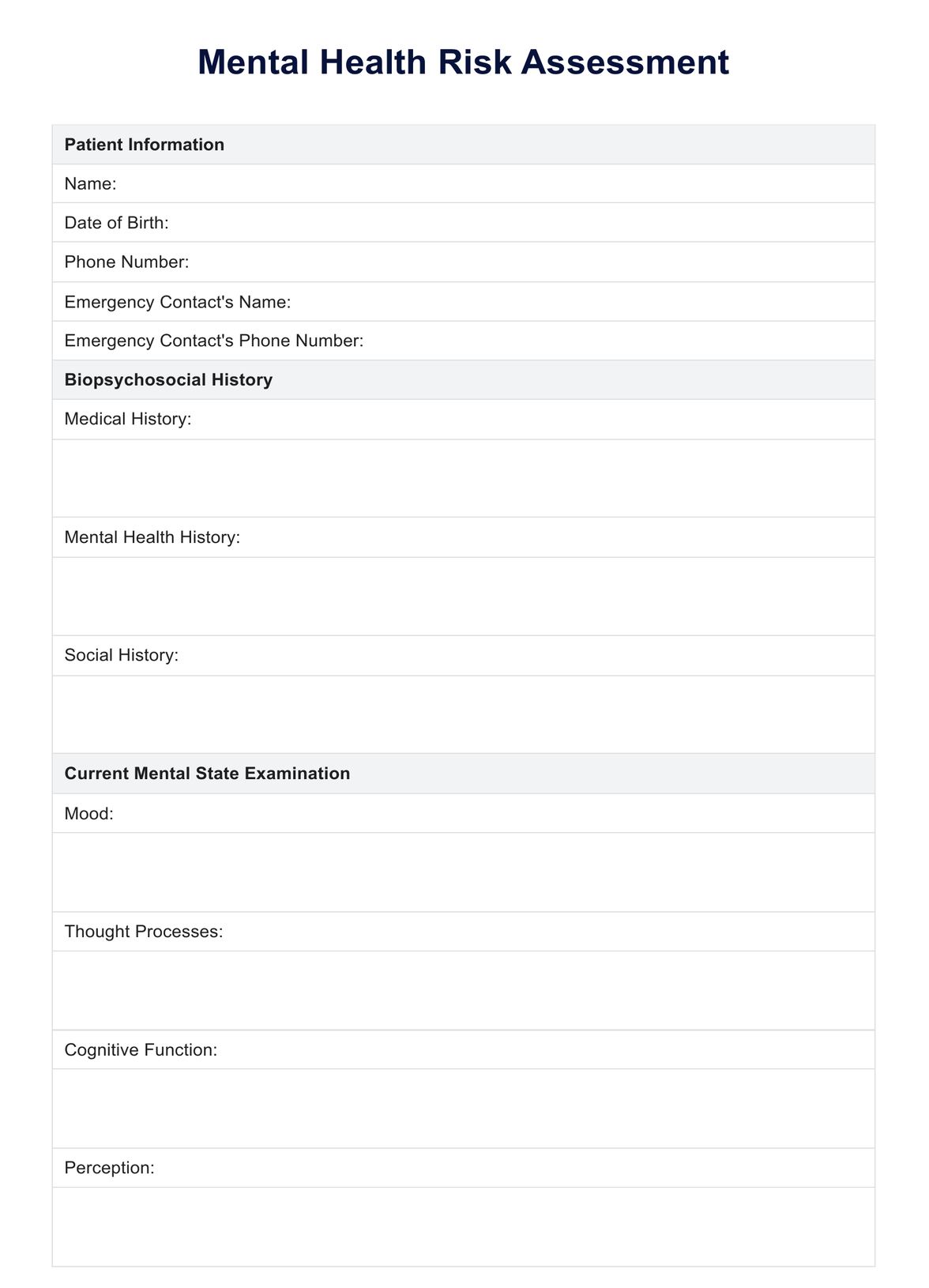A psychological risk assessment is a structured process that evaluates an individual's mental health status, identifying potential risks and protective factors. It aims to provide insights into the likelihood of adverse outcomes such as self-harm, suicide, or the exacerbation of mental health conditions.

Mental Health Risk Assessment
Understanding mental health risk assessment is crucial for identifying potential risks and implementing appropriate interventions. Learn about the importance and steps involved in this process.
Mental Health Risk Assessment Template
Commonly asked questions
Conduct a risk assessment when there are significant changes in an individual's mental health status or life circumstances or when there are observable signs of distress. It is also crucial during periods of increased stress, trauma, or when considering changes in treatment plans.
Conducting a risk assessment allows for early identification and intervention of potential mental health risks, leading to more targeted and effective care. It promotes safety, supports the development of personalized treatment plans, and enhances overall well-being.
EHR and practice management software
Get started for free
*No credit card required
Free
$0/usd
Unlimited clients
Telehealth
1GB of storage
Client portal text
Automated billing and online payments











